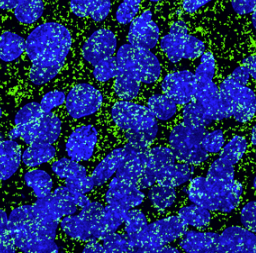Members
Principal Investigator
Dr. Jeremiah Zartman
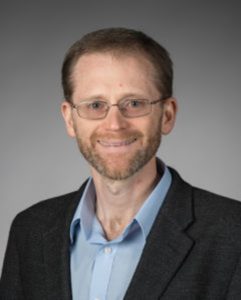
Bio: My primary research focus is studying the signaling networks that regulate cell decisions such as differentiation, proliferation, and apoptosis, as it relates to organogenesis, cancer, and wound healing at a systems-level. A key challenge for systems bioengineers is to create bottom-up approaches that instruct cells to repair themselves or regenerate tissues. However, this goal requires new tools and knowledge. My laboratory seeks to identify fundamental principles that govern how cells communicate and coordinate their behavior to organize themselves into functional organs. This research provides new perspectives on the causes of tissue degeneration and cancer.
We develop cell-, organ- and whole-animal models to study the molecular basis of human diseases. We also create tools to advance quantitative data analysis of thick tissues. Currently, our research group investigates the molecular logic of organ development, which holds the key to fixing the underlying causes of disease: broken cell communication.
Postdoctoral and Research Staff
Dr. Maria Unger
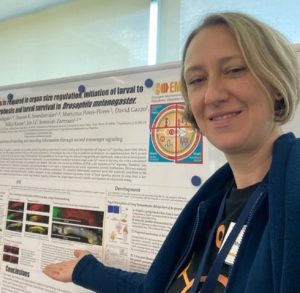
Maria F. Unger, Ph.D., is a Postdoctoral Research Associate in Dr. J. J. Zartman’s lab. Her professional interests include, but not limited to Calcium signaling and cell communication, development, aging, inflammation, immune and autoimmune responses, genetics & genomics, bioinformatics, olfaction, circadian rhythms, genealogy and global health.
Maria enjoys being a researcher for 20+ years and has an experience of being in different roles: Volunteer, Research Technician, Graduate student and a Postdoctoral fellow; she studied a wide range of scientific problems including speciation, genome sequencing and assembly, Transposable element annotation and others. Currently, she works with Drosophila melanogaster and is focused on Calcium signaling. She studies G-Protein Coupled Receptors (GPCRs), G-protein subunit G alpha q and it’s role in a cell signaling cascade, as well as other components of Calcium signaling in a developing Drosophila wing. For fun, Maria enjoys reading scientific papers, watching historical documentaries, science fiction, painting, dancing and gardening. She has a family of three as well as a happy owner of a dog, a cat, fish, chickens and honeybees.
Dr. Pablo Cisternas Esguep
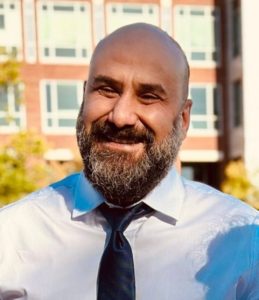
Bio: Since a very young age, I gravitated toward Biology. In college, my degree in Biological Sciences explored therapeutic approaches to treat male infertility by analyzing spermatozoa’s apoptotic machinery. After that, I obtained my Ph.D. in Molecular Biosciences in Neurobiology. My thesis described astrocyte-secreted products’ changes and neurotoxic effects on synaptic structure and functioning under gestational hypothyroxinemia (a lack of the thyroid hormone T4). Later, I led an Institutional Improvement Project for Science and Innovation that examined iPSCs-derived exosomes as synaptoprotective agents. Most recently, I conducted research identifying novel in situ and secreted astrocyte-derived neurodegenerative/neuroprotective biomarkers in the context of Alzheimer’s Disease, focusing on astrocytic tau. Additionally, I investigated the synaptotoxic effects of cerebrovascular amyloid build-up and its interplay with tau. My current field of study is to elucidate protein-protein interactions (PPIs) dynamics in Drosophila-based disease models. Also, I aim to integrate the field of PPIs and its related pathways in astrocyte biology, exploring its mechanisms in cancers like glioblastoma and analyzing neuronal survival and synaptic preservation.
Beatriz Borrelly
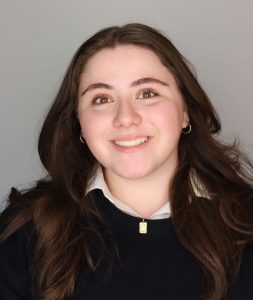
I graduated with a Bachelor of Science in Biomedical Sciences and a Minor in Psychology from the University of South Florida in the Spring of 2024. I am now in my gap year and plan to apply to medical school. During my undergraduate studies, I worked with Drosophila melanogaster and served as a Learning Assistant for the Genetics Laboratory for three semesters. I was also a Resident Assistant for the Housing and Residential Education as well as a Peer Leader in the Chemistry Department.
I am the research technician for our laboratory, where I maintain the laboratory stocks, organize inventories, manage updates to our papers and website, assist other lab members with their research projects, and much more. MSEL really fascinated me with its work and for focusing on neurodegenerative diseases. Combining Drosophila melanogaster with diseases in the human brain really resonated with me, as I always wanted to learn more about neurodegenerative research due to my family’s experience, as well as my curiosity. Working with Drosophila was also a bonus, as it was something I enjoyed while completing my bachelor’s degree. For fun, I enjoy dancing, crocheting, arts and crafts, braiding hair, and spending time with my dog and loved ones.
Stacey Kim

Graduate Students
David Gazzo
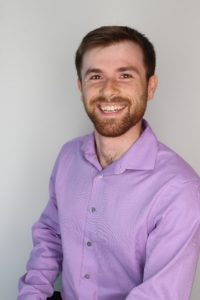
Bio: My passion for studying developmental biology stems from my family’s experience with genetic illnesses. Witnessing my grandparents’ cognitive decline, coupled with their encouragement to pursue higher education, inspired me to pursue an engineering career focused on unraveling the signaling networks driving tissue development and disease while designing treatments to preserve the cognitive health of our communities.
Benjamin Speybroeck
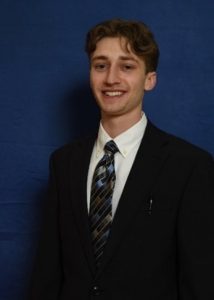
Bio: My research focuses on unraveling the mechanisms of morphogenesis, particularly the eversion process of the imaginal wing disc in Drosophila melanogaster. I combine advanced imaging techniques and genetic tools to explore how cells coordinate and remodel during development. By investigating these processes, I aim to contribute to a deeper understanding of developmental biology and its implications for regenerative medicine and genetic disease research.
Caitlin Frank
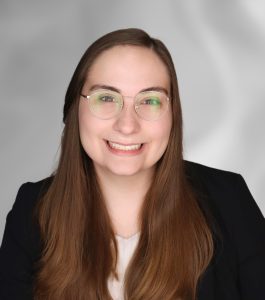 Bio: I am a Ph.D. student in the Bioengineering Department at the University of Notre Dame, where I focus on molecular biology and genetic engineering. I grew up in a suburb outside of Phoenix, Arizona, with my two older sisters and my parents. After graduating from high school, I moved to Troy, New York, to attend Rensselaer Polytechnic Institute, where I earned a B.S. in Chemical Engineering. During my undergraduate years, I conducted research at the Arizona State University Biodesign Institute, studying the Cleavage and Polyadenylation Complex in C. elegans. I also worked in a research lab at Rensselaer Polytechnic Institute, investigating the recombinant production of biodegradable dye, derived from coral chromoproteins, in E. coli. These experiences helped shape my interest in the molecular mechanisms underlying genetic diseases.
Bio: I am a Ph.D. student in the Bioengineering Department at the University of Notre Dame, where I focus on molecular biology and genetic engineering. I grew up in a suburb outside of Phoenix, Arizona, with my two older sisters and my parents. After graduating from high school, I moved to Troy, New York, to attend Rensselaer Polytechnic Institute, where I earned a B.S. in Chemical Engineering. During my undergraduate years, I conducted research at the Arizona State University Biodesign Institute, studying the Cleavage and Polyadenylation Complex in C. elegans. I also worked in a research lab at Rensselaer Polytechnic Institute, investigating the recombinant production of biodegradable dye, derived from coral chromoproteins, in E. coli. These experiences helped shape my interest in the molecular mechanisms underlying genetic diseases.
Learning that my sisters and I carry a genetic pre-mutation of Fragile X syndrome has fueled my passion for biological engineering, to help develop treatments for people with genetic disorders. I aim to develop a deeper understanding of how genetic mutations contribute to neurodegenerative diseases and how genetic engineering techniques can be employed to “cure” or prevent these diseases in the future. My current research focuses on understanding perturbations in the Bone Morphogenic Protein signaling pathway in Drosophila and investigating its implications in disease development and progression.
Yikang Gong
 Bio: I am passionate about applying innovative technologies to unravel
Bio: I am passionate about applying innovative technologies to unravel
complex cellular processes. With a strong foundation in molecular and
cell biology and currently developing skills in machine learning, data
analysis, and image processing, my current projects explore the dynamic
nature of calcium signaling and aim to optimize cell engineering strategies for regenerative applications. My interdisciplinary approach and commitment to data-driven discovery fuel my aim to unlock fundamental “life rule” insights, ultimately contributing to advancements in regenerative medicine
Naomi Ross
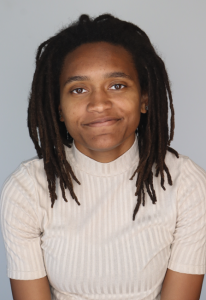 I graduated in spring of 2023 from Temple University with a B.S. in biophysics and a minor in chemistry. While at Temple, I was also on their division 1 women’s fencing team and conducted research in the Borguet Lab. My work in the Borguet Lab focused on developing a simplified contact angle measurement setup and worked with a graduate student to successfully collect and analyze contact angle measurement using our modified and cost-effective method. I spent one summer completing a summer research program at City College of New York in the Marilyn Gunner Lab. There, I learned about their model to determine the pKa of residues and compared new and old experimental data to improve the accuracy of the program. I began Notre Dame’s Biophysics PhD program in the fall of 2024. I joined the Zartman lab because I am interested in cell growth in relation to wound healing and hope to add a biophysical approach to the questions we aim to answer in this lab. I’m excited to take
I graduated in spring of 2023 from Temple University with a B.S. in biophysics and a minor in chemistry. While at Temple, I was also on their division 1 women’s fencing team and conducted research in the Borguet Lab. My work in the Borguet Lab focused on developing a simplified contact angle measurement setup and worked with a graduate student to successfully collect and analyze contact angle measurement using our modified and cost-effective method. I spent one summer completing a summer research program at City College of New York in the Marilyn Gunner Lab. There, I learned about their model to determine the pKa of residues and compared new and old experimental data to improve the accuracy of the program. I began Notre Dame’s Biophysics PhD program in the fall of 2024. I joined the Zartman lab because I am interested in cell growth in relation to wound healing and hope to add a biophysical approach to the questions we aim to answer in this lab. I’m excited to take
part in the research conducted in this lab and look forward to the time I will get to spend with my new lab mates. I grew up in Aurora, CO with my parents, sister, brother, and our dogs Oscar and Lena. My older brother, Max, is an aerospace engineer. My older sister, Sylvana, is earning her PhD in entomology at Cornell University, studying ants in urban environments. My parents are happily retired, and our dogs are spoiled rotten. While I still feel very new to Indiana, I am happy to be at Notre Dame and look forward to what’s to come.
Undergraduate Research Assistants
2024-2025 Academic Year
Isabela Cifuentes Enriquez (Summer 2025)
George Tang (Summer 2025)
Andrew Wang (Fall 2024, Spring 2025)
Lucy Chmura (Fall 2024, Spring 2025)
Clare Lucey (Fall 2024, Spring 2025)
Lucy Rakowski (Fall 2024, Spring 2025)
Danny Ward (Fall 2024, Spring 2025)
Bridget Sweeney (Fall 2024, Spring 2025)
Cole Morris (Fall 2024, Spring 2025)
High Schooler Research Volunteers
Mehreen Buchh (Summer 2025)
Cesar Robles (Summer 2023, 2024, & 2025)
Elizabeth Gordeyeva (Summer 2024, Spring 2025)
Key-Shawn Cole (Summer 2024)
Lab Alumni / Last known affiliation
Dr. Mayesha Sahir Mim, Postdoctoral Research Scientist at Northwestern University Feinberg School of Medicine
Dr. Nilay Kumar, Postdoctoral Research Scientist at Purdue University
Dr. Marycruz Flores-Flores, Postdoctoral Fellow at University of Colorado Anschutz Medical Campus.
Dr. V. Vijay Kumar Naidu, Data Scientist, Zifo
Dr. Francisco Huizar, Quantitative Systems Pharmacology Scientist, DILIsym Services, a division of Simulations Plus
Dr. Dharsan Soundarajjan, Mathematical Modeler at Immunetrics
Dr. Megan Levis, Post-doc at the University of Notre Dame
Dr. Ramezan Paravitorghabeh, former post-doc, Senior Data Scientist, Pfizer
Dr. Qinfeng Wu, Senior Consultant at Guidehouse
Dr. Pavel Brodskiy, Data Scientist at Caris Life Sciences
Dr. Cody Narciso, BioTek Instruments
Dr. Miranda Burnette, Senior Research Engineer, Organogenesis
Jamison Jangula, Masters in CBE, May 2019, University of North Dakota
Undergraduate Research Alumni
Research Assistants (2022-2023): Lucy Chmura, Batradz Djikkaity
2020-2022 Giorgia Giordano (defended UG thesis, April 2022). Congratulations!
Akanksha Sachan, Madyson McDougal
Spring 2019: Seth Tautges, Trent Robinett, Cesar Moreno, Andrew Blake, Grace Gasper, Elizabeth Parisi, Mark Legendre, Beverley Watson, Ryan Govi, Adriana Szypnda
Fall 2018: Seth Tautges, Trent Robinett, Cesar Moreno, Brooke Gleason, Adriana Szpynda, Mark Legendre, Heather Flynn, Spencer Hayes, Ryan Govi, Andrew, Blake, Quincey Hogue
Summer 2018: Seth Tautges, Ulises Hernandez (PODEMOS participant), Ana Olivares (PODEMOS participant), Lev Suliandziga
